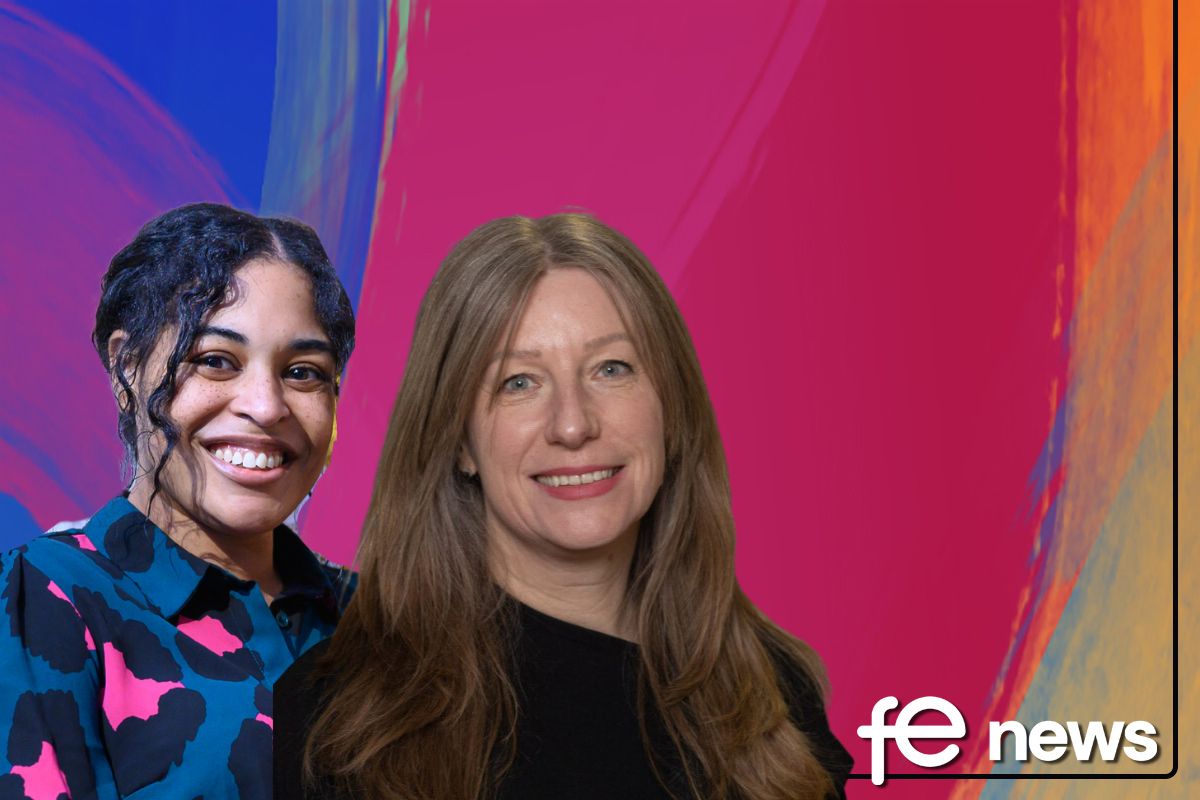‘T’ shaped skills in the creative industries

“The ideal worker of the next decade is ‘T-shaped’ – they bring deep understanding of at least one field, but have the capacity to converse in the language of a broader range of disciplines” – Future Work Skills 2020, Institute for the Future.
One of the main skill sets of the future will be that of the ‘T’ shaped worker, but whilst FE is known for its vocational skills and a growing emphasis on entrepreneurship, is there enough of a focus and understanding of the need to develop T-shaped skills?
The concept of T-shaped skills first came to prominence in the 1990s, but was popularised by Tim Brown, CEO of design firm IDEO, when describing the type of people he wanted to work for his organisation. More and more business in a wide variety of sectors are now looking to creative thinkers to drive competitive advantage through engaging deep problem solvers in their main discipline who also have the ability to apply knowledge and understanding in the context of a wide range of areas.
Evidence of this need came to me at Creative & Cultural Skills following a discussion with our Design Industry Advisors. One of them was showing me around his digital product studio describing how in his organisation they were seeing a number of highly technically skilled young people who were great at the computer screen, but who did not have the communication skills to be able to ‘pitch’ their ideas.
It’s a increasingly held belief that ‘T’ shaped people are those with a better sense of collaboration and understanding, people more adaptable to the changes in job structures and functions that are common in the modern portfolio career. Yet most formal education institutions still end up promoting I-shaped skills — the deep disciplinary experience represented by the T’s stem. As a result, individuals are driven ever deeper into his or her expertise, but end up leaving education without the full set of skills needed to be genuinely employable.
In the creative industries there are major concerns that people with a broad educational range and knowledge of areas such as STEM are being cut off downstream. As an example potential technicians, much needed by the sector, are being closed off from seeing how their skills can benefit industries that they had not necessarily thought of working in. I once had a conversation with a Principal of one of our Skills Academy education partner colleges where I pointed out that his Electrical Engineering students were undertaking a qualification that could lead them to become a lighting technician in a creative venue. “I wonder how many of those students know that.” I said. “I wonder how many of the staff know that?” was his reply.
Engineering courses at FE are typical in providing people with understanding in one field but where colleges fail to show them how their skills might be used in a wider range of disciplines or give them the additional broader skills as part of their course to enable them to apply them. Why aren’t we introducing STEM students to the broader range of skills that might lead them to being a technician in the creative industries?
It’s a wide spread problem. As part of the National Skills Academy for Creative & Cultural we’ve been running our popular Creative Choices careers taster days for some years now, but there always remains the struggle to get schools and colleges to bring non-creative arts students along to see the potential job careers that exist in a typical creative venue. There’s a need for creative technicians in areas such as Sound or even Venue Operations which has a big need for young people with entrepreneurial and business skills, but a potential future workforce is being cut off from the creative industries at the earliest ages. Why does that matter? Well, the digital and creative industry is one of just six sectors highlighted by the government as a priority for growth. The government’s aim is for the UK to be a world leader in this area, so if it’s not being addressed in colleges the UK will simply not be globally competitive.
T-shaped skills are not created as a deliberate policy but emerge often in spite of formal education. In a sector that is dominated by a significant number of freelancers a job in the creative industries may well lead typically to a portfolio freelance career, but how many courses inform students as to how to set up as a sole trader or even how to do tax returns?
Discipline-based education therefore remains a common approach, but in order to close the skill gap there is a need to equip students with the concepts and vocabulary to apply knowledge across the different situations they will encounter in their careers.
If FE is to thrive, the best colleges will be known for vocational skills, emphasis on entrepreneurship and T-shaped skills.
Robert West, Programme Director for Creative & Cultural Skills, and heads up the National Skills Academy for Creative & Cultural












Responses